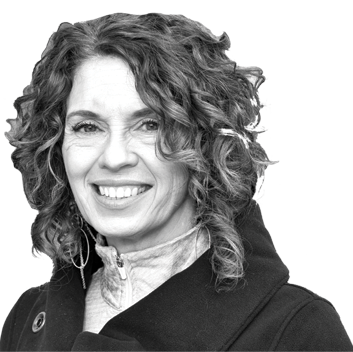“My doctoral work was all relates to homelessness because I saw a huge disconnect between mainstream healthcare and these individuals.”

Jennifer Cline DPH ’17
For her job, Jennifer Cline DPH ’17 carries around a backpack. Not necessarily a big, hulking, hiking backpack, but a relatively large one. And it needs to be filled with everything she needs on a given day.
Narcan nasal spray, which can help reverse an opioid overdose. Sanitary wipes. Saline rinse. Wound care supplies. Ace wraps. Neosporin and other topical medications. Over-the-counter medications. Tylenol and Advil. Peroxide for wound cleaning. Foot care supplies for blisters and calluses. Ointments for burns. Heat and cold packs. Cotton pads. Suture kits.
“What I put in my backpack is constantly changing, because there’s always something that needs to be added or replaced,” she says.
Cline is a board-certified nurse practitioner working as the only health care provider for “Open Door: Homeless to Home,” an innovative new mobile homeless street outreach program in northern Kentucky that formed in 2017. Since graduating with her doctorate of nursing practice from Drexel’s College of Nursing and Health Professions in 2017, Cline has worked as part of a three-person team that regularly roams the streets (and the woods, and the parking lots, and under bridges and anywhere they need to be) to provide medical care, prescriptions, social work and mental health services to homeless populations.
Cline is constantly seeking out and treating people with a wide range of medical problems, and because it’s just her and her backpack, that means she has to be prepared for, well, anything.
“My clinic is my backpack,” says Cline.
In one typical 10-month period, Cline treated about 250 individuals, with about 450 to 500 contacts total including repeat visits. “The rewarding thing is to engage them as human beings, because there is a lot of bias from the community and people who don’t want ‘these people’ next to them,” says Cline. “There are patients who couldn’t meet my eye at first because they were so ashamed and now they have so much confidence.”
Though Cline had years of volunteering experience, she didn’t begin working full-time with homeless populations until after she graduated from Drexel. Before starting at the University, Cline had built up a 34-year nursing career. She completed Drexel’s program while still living in Kentucky and maintaining her active clinical practice.
“My doctoral work was all related to homelessness because I saw a huge disconnect between mainstream health care and those individuals,” she says.
One of her last practicum experiences was with Welcome House of Northern Kentucky, which offers “Open Door: Homeless to Home.” Just as she was wrapping up her degree the organization received unsolicited funds to create a mobile homeless team, and Cline was invited to develop the team she now works on.
“It’s so serendipitous that every class I had, I could relate something to homelessness and then my project perfectly lined up with the timing of the research team being formed,” she says.
Cline’s team recently won a highly competitive large grant to create a mobile clinic, or a “little clinic on wheels,” as she described it, to provide their physical, mental and social services in a more secure and private manner. The van will be parked in strategic locations at set times of the day so people will know where to go for help when they need it.
Cline will still carry around her backpack, of course — “I don’t think that will go away,” she laughs.


